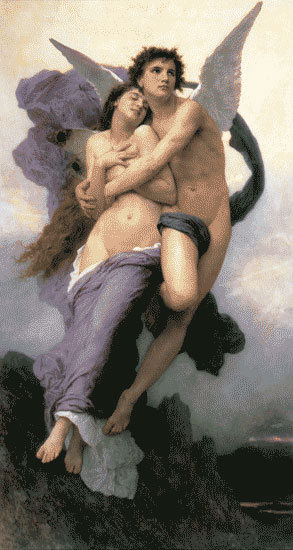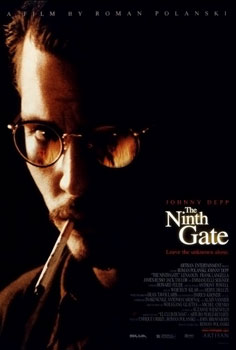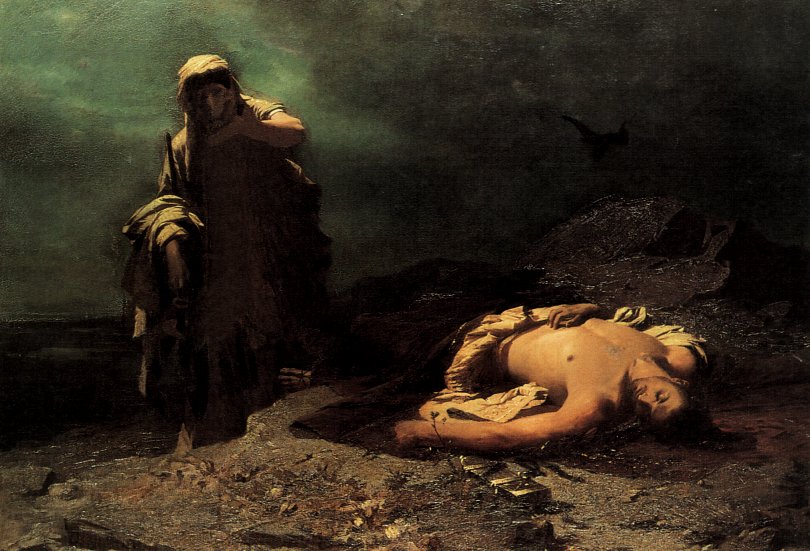Eric Crouch
11/30/11
Lit 285
Final Paper
Angels of Ignition
“A life in which the gods are not invited isn’t worth living. It will be quieter, but there won’t be any stories. And you could suppose that these dangerous invitations were in fact contrived by the gods themselves, because the gods get bored with men who have no stories” (Calasso 387). Roberto Calasso’s book The Marriage of Cadmus and Harmony is an extremely detailed account of Greek mythology. Calasso helps us understand that the gods are still present in the lives of humans; when one looks, one will find that the gods are everywhere and continue to influence and seduce us. The fiction genre is heavily influenced with mythology. Richard Van Camp’s The Lesser Blessed tells the story of Larry and his mythological journey through adolescence. The Lesser Blessed has many mythological similarities with John Fowles’ The Magus. Both Larry and Nicholas, the protagonist of The Magus, experience Joseph Campbell’s Monomyth. Mythology can be identified as three distinct stages: separation, initiation, and return. Through each of these stages, if reading closely, one can see how mythology predestines the lives of Larry and Nicholas. Their stories have already been told before and many humans will walk in their footsteps. The stories of Larry and Nicholas are examples of how mythology is the precedent behind every action; stories of the gods and their influence in the lives of fictional characters help us understand our own lives through a new lens.
Separation is the first stage of mythology; for most humans, this is when we were a zygote in the belly of our mother. The time before separation is simple and things are in the absence of chaos. However, something happens to us and we are whisked away from this innocence by something more powerful than our human bodies. In The Lesser Blessed, Larry is separated from the innocence of his childhood when he accidentally sees his father raping his unconscious auntie. “…she was passed out. He was on top of her and he had her shirt up and everything. I wanted to scream. The way she just took it, I could tell she didn’t know. My dad fucked her so fast. I couldn’t believe it. I ran away…” (88). The act of rape is something not uncommon to mythology; by seeing the rape, Larry is separated from his childhood. Larry is also separated from other children his age and the adults who are in his life. In The Magus, Nicholas is separated from his usual daily routine when he meets Alison. “Even close to her, I was always being wrong-footed. She would be ugly one moment, and then some movement, expression, angle of her face, made ugliness impossible” (31). Nicholas has met a woman who will change his life forever; Nicholas’ previous life of de-flowering virgins and womanizing was over; he had now entered a new ballgame, a Godgame. Though by different scenarios, Nicholas and Larry have subconsciously left behind their old lives and will be embarking on something much more frightening and deeply mythological.
Initiation is the second stage of mythology; initiation usually begins immediately with many trials and tribulations after the act of separation. Initiation takes many shapes; often times, the period of initiation is very long and is always a painful process. Pain and suffering is prevalent in both Larry and Nicholas’ life. Shortly after Larry sees his father’s act of rape, his father sexually abuses Larry. “I couldn’t breathe. I wanted to sew stitches through my lips so he could never fuck me there again. Mother. The flame light. The flame rush” (78). This act of rape was Larry’s first stage of initiation. Sexual abuse is something that is de-humanizing can ruin a person for the rest of their lives. In the footsteps of a hero, the only thing Larry can do is kill his father. “… me standing over him; fire roaring from room to room; me standing in the crowd with a box of matches and the hammer; oh God in Heaven forgive me, my hammer, my secret tusk; me standing over Dad and bringing it down, slamming it down, knowing Dad’s passed out, knowing he’s dreaming” (78). Larry burns down his Dad’s house after he had beaten his dad unconscious, ultimately killing his father. Patricide is a highly mythological act; many gods and heroes have killed their own fathers. Oedipus, in the play Oedipus Rex by Sophocles, is a one of many examples of Patricide. Oedipus knows that he is destined to kill his father and takes many preventative measures from killing his father and marrying his mother. The power of myth is much more powerful than the soul of a hero or human. In the end, Oedipus kills his father and marries his mother.
Similarly, one of the stories from Mercia Eliade’s From Primitives to Zen is a creation story which involves patricide. Hesiod’s Theogony and Cosmogony is a story of how the earth convinced her son, Cronus to castrate his own father. The earth-mother is prepared to use violence to castrate the sky “My children, you have a savage father; if you will listen to me, we may be able to take vengeance for this evil outrage: he was the one who started using violence.” The blood of the castration spills into the sea and created sea-foam from which Aphrodite was born. The drops of blood which landed on the earth created Erinyes; Erinyes appear when matricide has taken place. “In the course of the revolving years she gave birth to the powerful Erinyes [Spirits of Vengeance] and the huge Giants with shining armour and long spears.” Although it is an incriminating offense in most penal systems, Hesiod’s Theogony and Cosmonogy had somewhat positive outcomes from the initiation act of patricide. In the case of Larry, his act of patricide was only the start of initiation.
One of the ways that Larry deals with the pain and suffering of initiation and adolescence is through storytelling. Mythology is based on the act of oral storytelling; the written word was a technology that many cultures did not create or utilize until relatively recently in human history. Stories are therapeutic for Larry and also for whoever is listening. Larry uses stories to help him through the trials and pain of initiation. One major theme that developed in The Magus and The Lesser Blessed was the dead living through love. Conchis speaks to Nicholas about his love and affections towards Lily; Conchis speaks of Lily as if she were alive. Nicholas asks Conchis why he talks of her in that manner and Conchis replies that the dead live by love (153). Conchis tells Nicholas this because he wants Nicholas to transcend with him and blur the lines of reality. In The Lesser Blessed, Juliet, the girl Larry is infatuated with, asks him to tell her a story. Larry can tell Juliet is in tears; Larry transcends and tells Juliet a story. “I closed my eyes and decided to let the story lead. I was just the voice, and I knew the story would tell itself” (99). Larry tells Juliet a story about a Dogrib (Larry’s tribal ethnicity) women who was haunted by her son. After some investigation, this woman learned that she had to burn all of her dead son’s belongings to allow his soul to pass into the afterlife (99-101). Larry tells Juliet a story of how the dead can live in this world through love. Throughout the novel, Larry’s act of separation has rendered him incapable of understanding the feeling of love. Stories help him develop with the pain of initiation and adolescence. The presence of souls and their functions within the humanly world are a large part of Native American mythology, and mythology in general. The transcendence of Larry’s stories help him in the process of understanding the reality of his life and surroundings. This process helps him get closer to the third stage of mythology: return.
The third and final stage of mythology can be reached in many different ways. In Larry’s case, the return comes in the form of sexual satisfaction; having sex with Juliet allows him to finally understand the idea of love and acceptance, something he has been struggling with his whole life. “We went for spice and my tusk pulsed inside her my heart was inside her and it was sweet violation and she pulled me tight and this was the place of Jesus this was the place of Jesus this was the place of Jesus. I was touching her soul and I began to drown” (110). After sex, Juliet notices the deep burn scars all Larry’s body; she compared these scars to pieces of a jigsaw puzzle. The journey to return is not an easy one; Larry has severe scars from being burned in the fire of his initiation. In The Magus, Nicholas’ does not experience the final stage of mythology until he realizes that he has been a victim of a Godgame; he meets with Alison to find the meaning to his pain and suffering on the island of Phraxos. “The final truth came to me, as we stood there, trembling, searching, between all our past and all our future; at a moment when the difference fission and fusion lay in a nothing, a tiniest movement, betrayal, further misunderstanding” (654). From the moment of meeting Alison, Nicholas’ life had become property of a great puppeteer. Only in the last few pages of the novel does Nicholas realize that the Godgame has changed his life forever. His initiation had mostly mental pain and confusion; I would argue that psychological pain is on the same level as physical pain. These two novels help us understand that there are actions and influences in our lives, which stretch beyond the control of humans. Mythology is present in our every thought and action; our story has already been told; all we have to do is open our eyes to see beyond physical reality.
“I wept because I did not belong to anyone / I was not owned / not with mate / but I smiled too knowing this because I new my life was still / unwrapped / I would in time / find one to call my own / mine to disappear in / to be … “ (119). The final passages in The Lesser Blessed are Larry’s confirmation of his journey through the three stages of mythology. Patricide, seduction, and storytelling are three major themes which are laced between every word in Larry’s story; they each serve a function deeply rooted in Greek mythology. The story of Nicholas in The Magus is a vivid account of how mythology has the power to abduct any human being and change their life forever. Robert Calasso perfectly wrote the single most important thing about mythology: “…myth is the precedent behind every action, its invisible, ever-present lining” (383). Mythology is not something to be taken lightly; mythology can help us understand our own lives. The gods have the power of abduction and can take us to unimaginable places; disregarding mythology and the existence of gods and heroes only makes the road of trials more terrifying. Humans repeat the actions of past heroes and men every day. Only knowledge and awareness of mythology in your own life can prevent one from pulling an Oedipus and killing your own father and marrying your mom.
Works Cited
Calasso, Roberto. The Marriage of Cadmus and Harmony. New York: Knopf, 1993. Print.
Eliade, Mircea. "HESIOD'S THEOGONY AND COSMOGONY - Myths of Creation and of Origin - Myths of the Creation of the World - Mircea Eliade, "From Primitives to Zen"" From Primitives To Zen. Nebulous Cargo Productions, 1996. Web. 30 Nov. 2011. <http://www.mircea-eliade.com/from-primitives-to- zen/059.html>.
Fowles, John. The Magus: a Revised Version. Boston: Little, Brown, 1978. Print.
Van, Camp Richard. The Lesser Blessed. Vancouver, B.C.: Douglas & Molntyre, 2004. Print.




